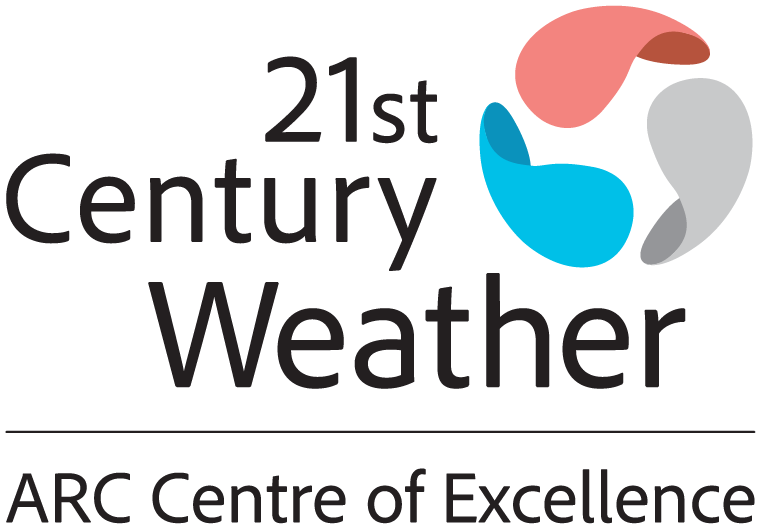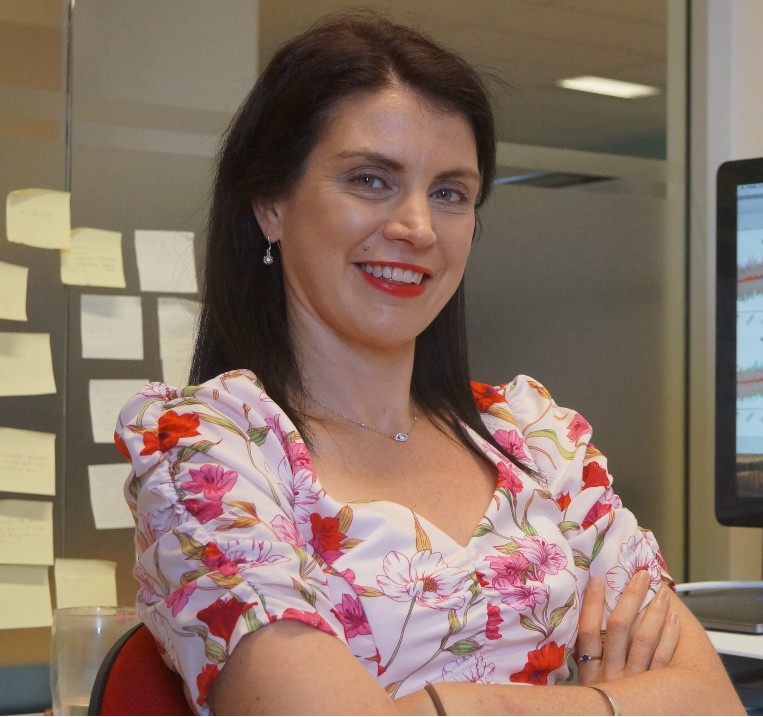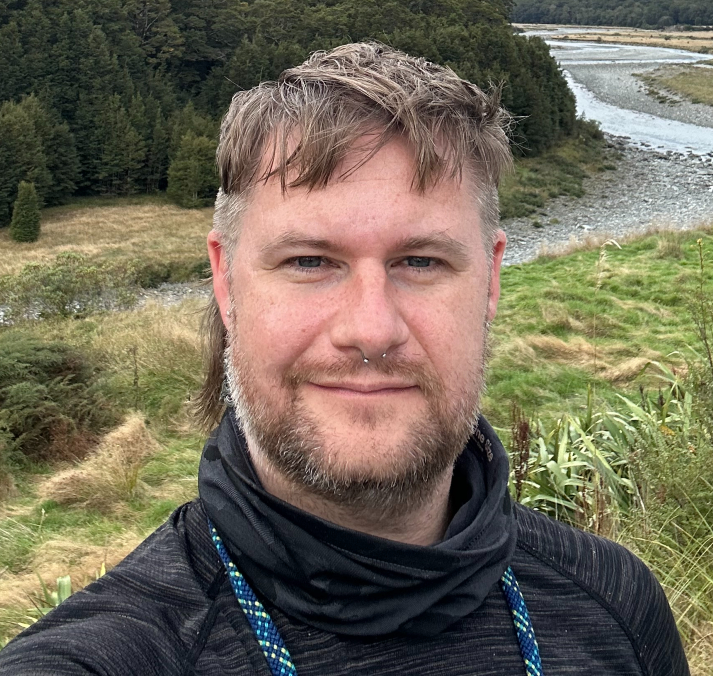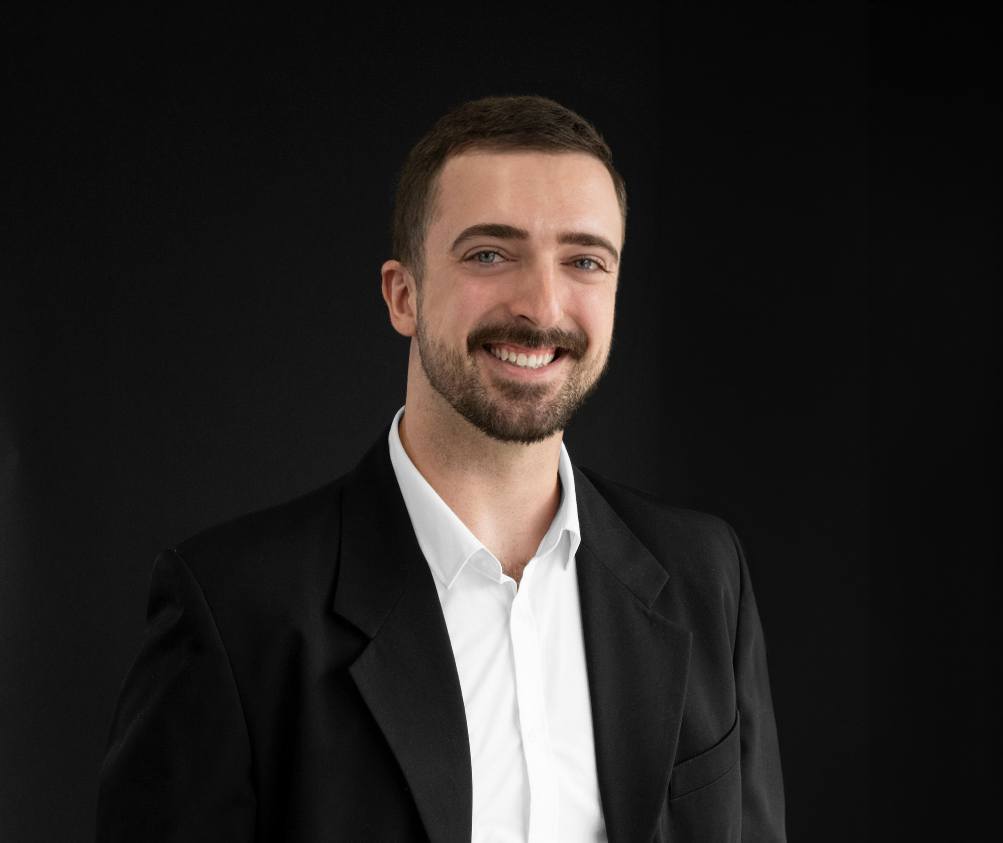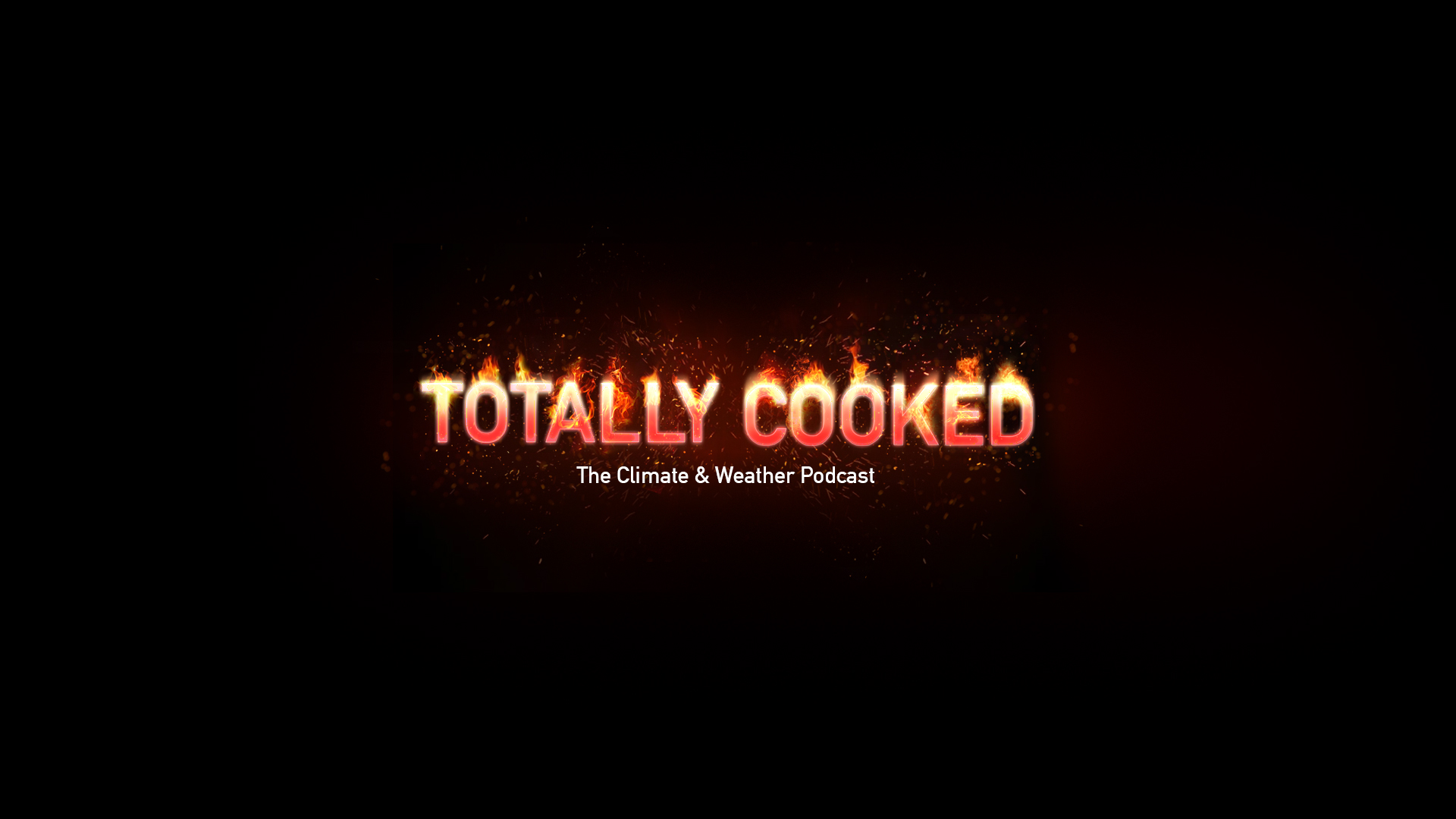
Totally Cooked: Episode 1 – Why are we in a climate crisis?
You’ve all heard that we’re in a climate crisis. But how do we know we’re in a climate crisis? When did global warming start? What’s the cause of the climate crisis? And what can you do about it?
In this episode of Totally Cooked, we’re going to learn when and how global warming and the climate crisis began.
We’ll talk about the industrial revolution, fossil fuels, and what happens when large volumes of greenhouse gases, like carbon dioxide, are added to the atmosphere.
This is just the start of a fascinating, scary and sometimes darkly funny look at the biggest challenge humanity has ever faced.
Show Notes
In this episode, we break down:
- What greenhouse gases are;
- The difference between global warming and climate change;
- The role of carbon dioxide and methane;
- Why scientists are concerned about 2°C of warming;
- What gives us hope moving forward.
Subscribe Now
Follow the links below and subscribe to Totally Cooked via Spotify, itunes/Apple Podcasts, Amazon, iHeart Radio, Deezer, and RSS. Let’s tackle the climate crisis, together.
Listen Now
An embedded player for the episode is available here. Follow the links above to subscribe and listen to the episode on your preferred platform.
Timestamps
00:00 – Cold Open + Introduction
- Quick banter introduces hosts Sarah (climate scientist) and Ian.
- Title: Totally Cooked: The Climate and Weather Podcast
- Theme: Exploring the roots of global warming and its impacts on weather.
00:29 – Time Travel and Pop Culture
- DeLorean vs TARDIS vs fridge (original Back to the Future concept).
- Light-hearted pop culture banter about time travel.
01:27 – Back to 1776: The Industrial Revolution
- The duo “travels” to 1776 to explore the Industrial Revolution.
- James Watt’s steam engine popularized.
- Start of widespread fossil fuel use.
03:03 – What is Coal?
- Explanation of coal’s origins and its use as a fossil fuel.
- Sarah describes coal as compressed organic matter (e.g. trees).
- “Squashed trees” metaphor.
05:39 – Why Coal Isn’t Renewable
- Clarifies why coal is not renewable.
- Mentions peat as a transitional fuel in Northern Hemisphere.
06:27 – Burning Coal = Carbon in the Atmosphere
- Explains combustion of coal and carbon release.
- Difference between carbon, CO₂, and other gases.
07:47 – How Much CO₂ Is in the Atmosphere?
- 2022 levels: ~421 ppm (0.042%).
- Pre-industrial levels: ~280 ppm (0.028%).
09:08 – Why CO₂ Has a Big Impact
- Greenhouse gases explained with the greenhouse analogy.
- Sarah describes shortwave vs longwave radiation trapping.
11:17 – Natural Greenhouse Effect
- Earth would be ~30°C colder without greenhouse gases.
- These gases are essential—but we’ve added too much.
12:20 – The Carbon Cycle
- Carbon’s movement between land, ocean, atmosphere.
- Stable for millions of years—until industrial era.
13:13 – Human Impact: 50% Rise in CO₂
- 1750–today: 50% increase in CO₂ levels.
- Methane up 150%; both are potent greenhouse gases.
14:28 – Paleo Climate: CO₂ Higher Than in 3+ Million Years
- Confirms human activity raised levels higher than in 3 million years.
15:52 – What Is Global Warming?
- Climate change vs global warming explained.
- Why “climate change” became the preferred term.
17:03 – How Much Warming & How Fast?
- Earth warmed 1.1°C since 1880.
- Warming accelerating—each decade hotter than the last.
18:57 – 2°C Warming = Dangerous Threshold
- IPCC describes 2°C warming as dangerous.
- Not all warming is linear or solely from climate change.
19:16 – Why a Warmer World Is Dangerous
- Systems not adapted to hotter temps.
- Uncertain impacts on food, water, health, politics.
20:52 – Fear, Frustration, and Hope
- Hosts acknowledge their fears and frustrations.
- Emphasize that it’s not too late to act.
21:49 – What Is Greenwashing?
- “Greenwashing” = performative climate action.
- Sarah explains it as “creative carbon accounting.”
22:34 – Australia’s Policy Shifts
- Australia’s move toward net zero.
- Small but meaningful progress like light-colored roofs, EV support.
23:59 – Hopeful Momentum
- Net zero in mainstream dialogue.
- More Australians and governments taking real steps.
24:56 – Wrap-up and Teaser for Next Episode
- Recap: We now know human-caused emissions drive warming.
- Teaser: Next episode will explore how we know this—ice cores, satellites, and the scientists who discovered the greenhouse effect.
Episode References & Further Reading
We’ve Been Talking About Climate Change for a Long Time
https://medium.com/@cimuir/we-ve-been-talking-about-climate-change-for-a-long-time-8e6eefa232a5
(Medium, by Ciara Muir)
1912 Article Linked Burning Coal to Climate Change
https://www.usatoday.com/story/news/factcheck/2021/08/13/fact-check-yes-1912-article-linked-burning-coal-climate-change/8124455002
(USA Today Fact Check)
On the Influence of Carbonic Acid in the Air upon the Temperature of the Ground (1896)
https://www.rsc.org/images/Arrhenius1896_tcm18-173546.pdf
(Svante Arrhenius, Royal Society of Chemistry)
Coal’s Link to Global Warming Explained in 1912
https://archive.nytimes.com/dotearth.blogs.nytimes.com/2016/10/21/coals-link-to-global-warming-explained-in-1912
(The New York Times, Dot Earth blog)
Scientists Warned the President About Global Warming 50 Years Ago
https://www.theguardian.com/environment/climate-consensus-97-per-cent/2015/nov/05/scientists-warned-the-president-about-global-warming-50-years-ago-today
(The Guardian)
History of Climate Science Research
https://scied.ucar.edu/learning-zone/how-climate-works/history-climate-science-research
(UCAR Center for Science Education)
Climate Change: Atmospheric Carbon Dioxide
https://www.climate.gov/news-features/understanding-climate/climate-change-atmospheric-carbon-dioxide
(NOAA Climate.gov)
Coal Explained
https://www.eia.gov/energyexplained/coal/
(U.S. Energy Information Administration)
Empirical Evidence for CO₂-Enhanced Greenhouse Effect
https://skepticalscience.com/empirical-evidence-for-co2-enhanced-greenhouse-effect.htm
(Skeptical Science)
Carbon Dioxide Now More Than 50% Higher Than Pre-Industrial Levels
https://www.noaa.gov/news-release/carbon-dioxide-now-more-than-50-higher-than-pre-industrial-levels
(NOAA News)
Climate Change Indicators: Atmospheric Concentrations of Greenhouse Gases
https://www.epa.gov/climate-indicators/climate-change-indicators-atmospheric-concentrations-greenhouse-gases
(U.S. Environmental Protection Agency)
Fourth Assessment Report – Working Group I, Chapter 1
https://www.ipcc.ch/site/assets/uploads/2018/03/ar4-wg1-chapter1.pdf
(Intergovernmental Panel on Climate Change)
Atmospheric CO₂ Levels Over Time (Google Books – “The Discovery of Global Warming”)
https://books.google.com.au/books?id=jeSwRly2M_cC&q=280&pg=PA52#v=snippet&q=280&f=false
(Spencer Weart, Harvard University Press)
Zenodo Dataset: Historical Greenhouse Gas Concentrations
https://zenodo.org/records/1230878
(Zenodo Open Data Repository)
Why listen to Totally Cooked?
Because it’s time to feel empowered, not overwhelmed. Totally Cooked is a science-backed, straight-talking podcast about weather, climate change, and what it all means for life on Earth – especially here in Australia.
Hosted by climate scientist Sarah Perkins-Kirkpatrick and science communicator Iain Strachan, Totally Cooked breaks down how human activity is changing the Earth’s systems—from our skies to our seas—and what we can do about it.
From greenhouse gases to fire weather, supercomputers to Antarctic ice cores, this is climate science without the jargon, and where no subject is too complex or controversial.
Totally Cooked is for anyone who wants to understand the science of climate change—without needing a PhD. Whether you’re a high school student, policy maker, journalist, teacher, concerned citizen or just a little climate-curious, this podcast will give you the tools to think clearly and act confidently.
- Understand the why behind climate change;
- Learn how climate change impacts real-world weather;
- Hear from the best researchers and scientists in their field and from around the world;
- Cut through the noise with clear, honest science.
Stay in touch
We want to build a community of climate and weather nerds.
If can’t get enough of Totally Cooked, join our mailing list to receive episode alerts, show notes, information about our guests and behind the scenes content.
You can also suggest a guest or topic by emailing totallycooked@21centuryweather.org.au.
Meet the team
Sarah Perkins-Kirkpatrick
CO-HOST
A Professor of Climate Science at the Australian National University, Sarah is an expert on extreme heat and a leading voice in Australian climate research and science communication.
Iain Strachan
CO-HOST / PRODUCER
Iain is a former journalist turned science communicator with a passion for telling big, complicated stories in clear, human ways.
